India is undergoing a massive digital revolution, driven by internet penetration, cloud, AI, and big data analytics. With businesses, governments, and digital startup companies adopting digital transformation, the need for scalable, secure, and compliant data center solutions has never been higher.
Growth in Data Center and the Digital India Vision
India’s data center market is witnessing exponential growth. The driving factors, such as
- 5G Deployment: 5G network deployment is driving data consumption, requiring low-latency data processing and edge computing functionality.
- Digital India Initiatives: Government initiatives like Meghraj (GI Cloud) and Smart Cities Mission are forcing organizations to adopt cloud technology more.
- Hybrid & Multi-Cloud Adoption: Organizations are embracing a mix of on-premise, private, and public cloud offerings to remain agile.
Top Data Center companies are expanding capacity in order to cope with increasing demand.
Why is India a good destination for Data Center Services?
- Geographical Advantage: positioned centrally, India makes it a good spot to link the East and the West using technology and online services.
- Data Localization Laws: Rules like the Personal Data Protection Bill are forcing businesses to store data within the country.
Increasing Cloud Adoption: cloud-first strategies are driving demand for trustworthy data center providers offering hybrid and private cloud hosting platforms.
Selecting an ideal Data Center Service Provider
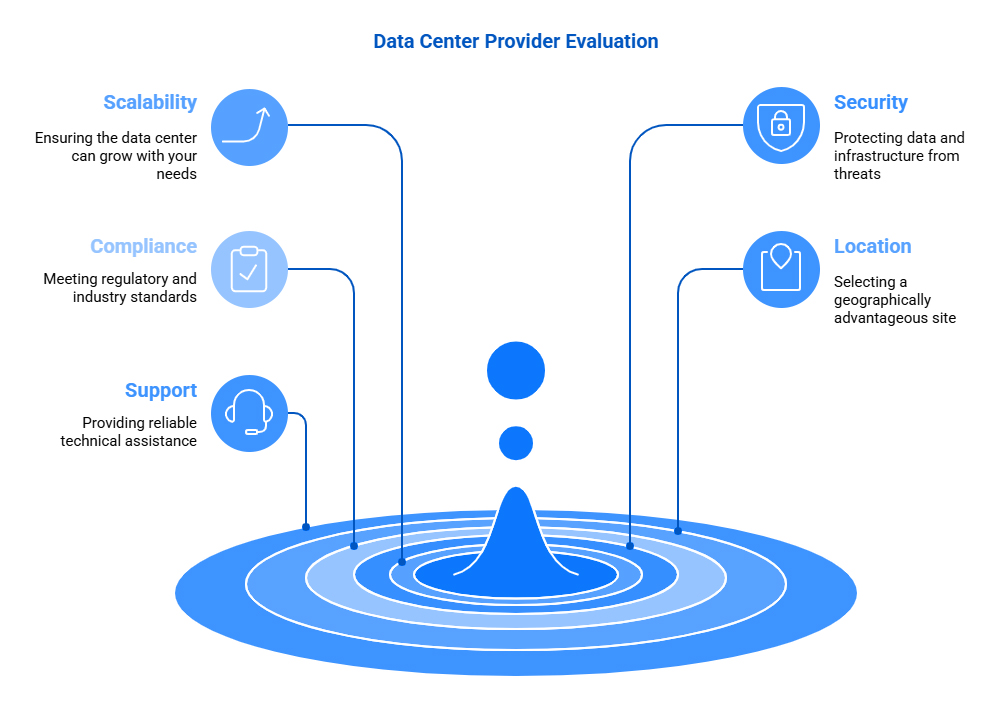
As the market becomes more competitive, selecting among top data center service providers is a sensitive process. Organizations must compare providers to key criteria:
- Scalability: Can the provider keep pace with your expansion in the next 5–10 years?
- Security: Are there strong physical and cybersecurity measures? How do they deal with threat detection and breaches?
- Compliance: does the provider follow important industry rules like ISO 27001, PCI DSS, and GDPR?
- Location: Are their data centers situated at the right locations to make data move quickly?
- Support: Do they offer customer and technical support 24/7?
Strong Security: More Than Just Compliance
Modern data center security is not just securing the location and fitting security cameras. It involves many layers of protection, such as
- Intrusion Detection and Prevention Systems (IDPS)
- Biometric checks like fingerprint or face scans
- Disaster Recovery and Backup Facilities
- Protection from online attacks
- Secured ways to store and send data (encryption)
The Role of Managed Data Center Services
They seek managed data center services—offered by top data center management providers—on end-to-end solutions, including infrastructure provisioning up to cost management and workload optimization.
Advantages are
- Simple to operate
- Enhanced Uptime and faster Performance
- Remote Monitoring
- Fixed and predictable costs.
Trends that are shaping the future of Data centers
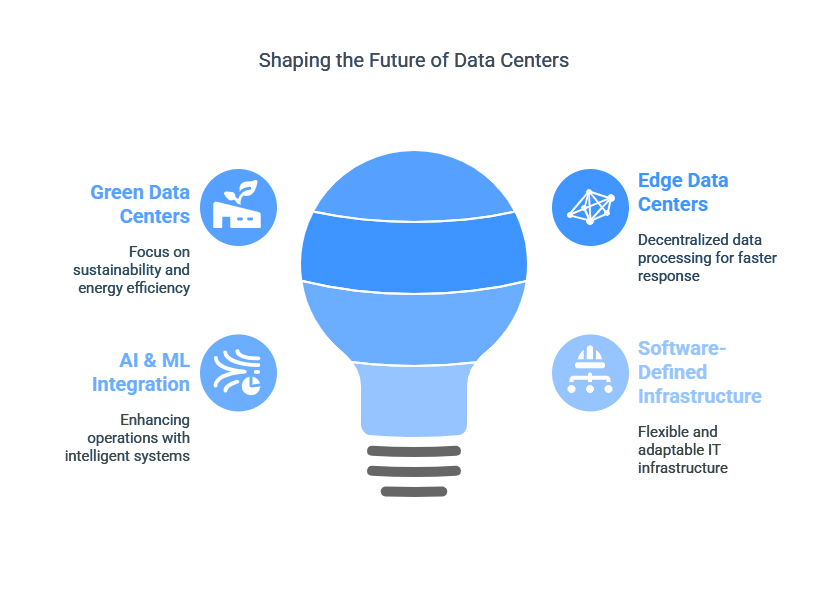
- Green Data Centers: Consistent with rising ESG concerns driving investment in buildings lit by solar, liquid cooling infrastructure, and energy-efficient design.
- Edge Data Centers: Smaller data centers placed closer to users to support fast services like IoT, AR/VR, and autonomous systems.
- AI & ML in Data Center Operations: Predictive maintenance, real-time threat analytics, and resource allocation.
- Software-Defined Infrastructure: Flexible systems that can be easily changed and managed through software instead of fixed hardware setups
Why Businesses Rely on Indian Data Center Providers
Indian Data Center providers are constructing facilities that aim to match those of international players. Why are they different?
- Domestic talent with global vision
- Clear understanding of regulatory mandate
- Affordable pricing models
- Customer-focused high Service Level Agreements (SLAs)
- Specialised BFSI, government, healthcare, and e-commerce offerings
What lies ahead for India’s Data Center
With more industries becoming digitized —like digital banking, smart government, and telemedicine healthcare—data center management will become more important and more complex.
The future belongs to providers who can:
- Scale dynamically
- Maintain zero downtime
- Deliver top-notch security
- Align with India’s growing digital sovereignty movement
Final Thoughts
India is striving to become a world leader for data center services— government policies, a thriving digital economy, and increased demand for localized, secure cloud infrastructure.
Whether you’re a fintech startup that wants to scale, a public sector organization that wants to better serve citizens, or an enterprise that is adopting hybrid IT—ESDS Software Solution Limited aims to provide the agility, durability, and regulatory compliance that your digital tomorrow requires.
Because today, the question isn’t whether your business needs a data center. It’s whether your data center partner is future-ready. With ESDS Software Solution Limited, the answer is a confident yes.



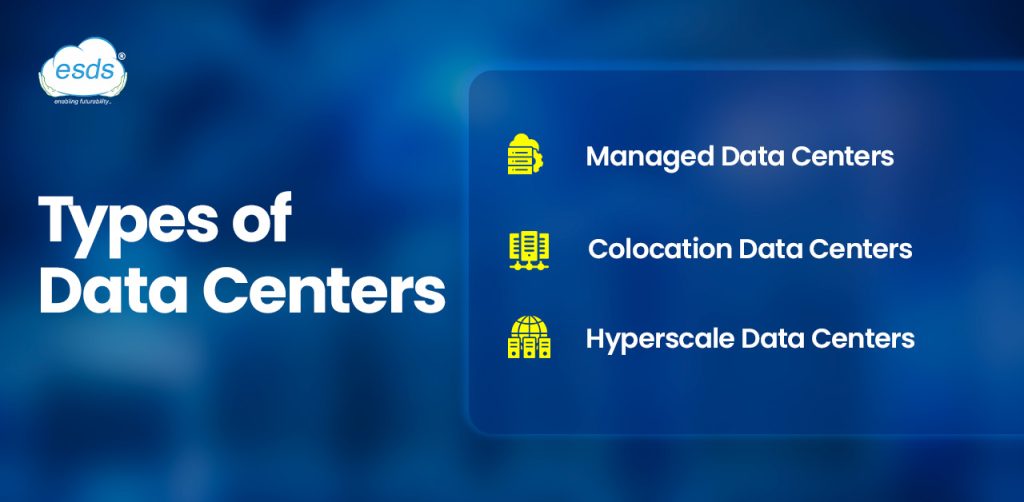
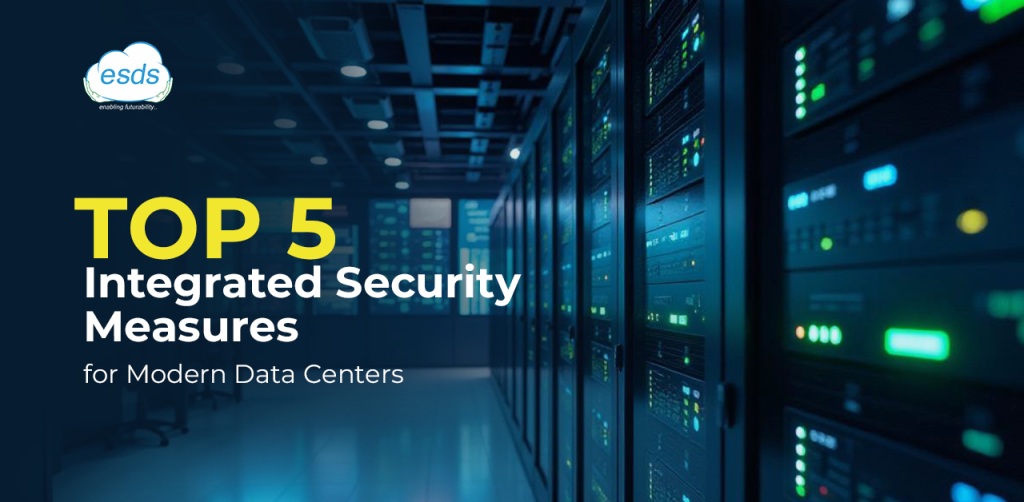
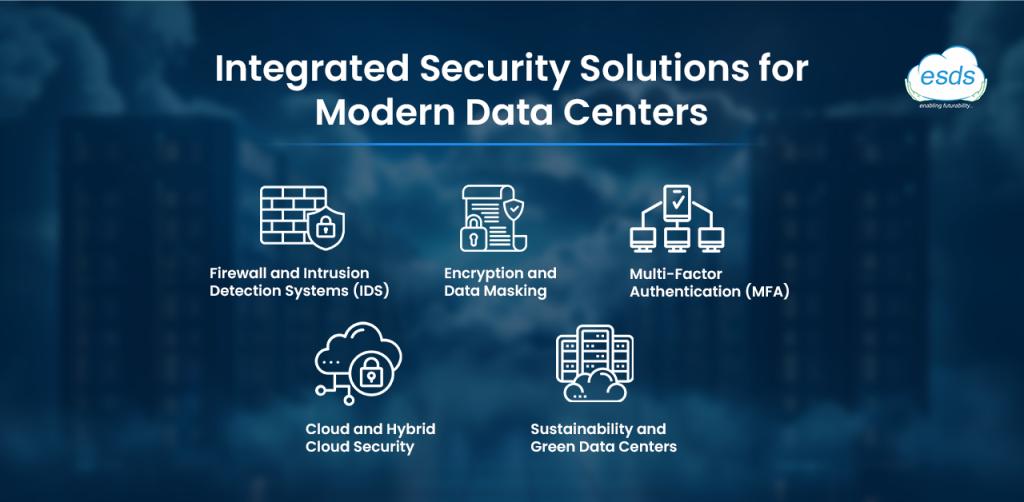
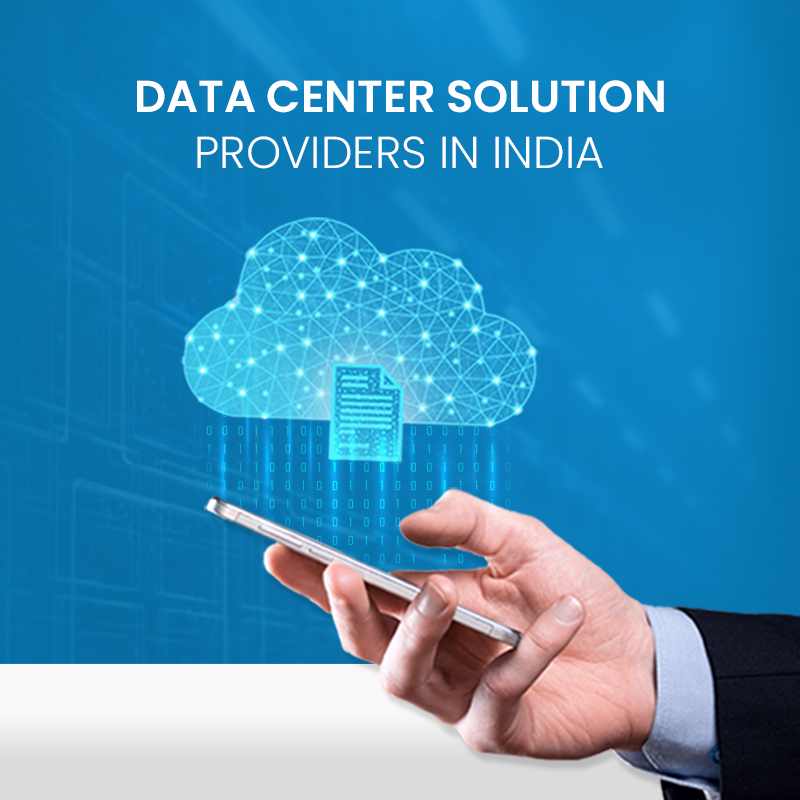
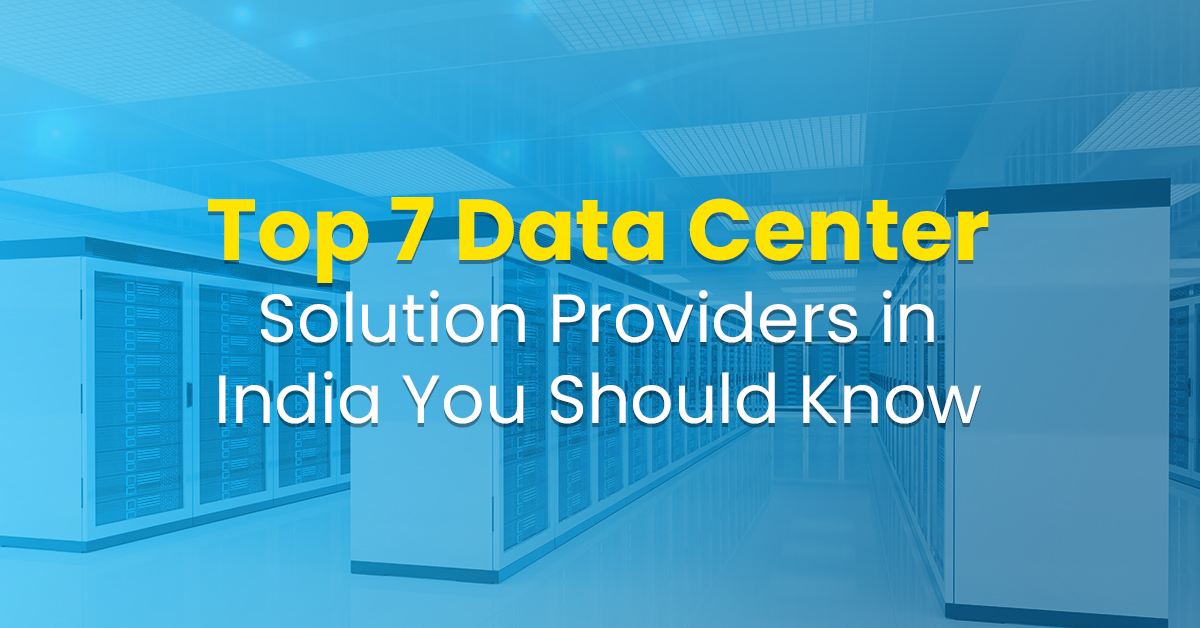
Recent Comments